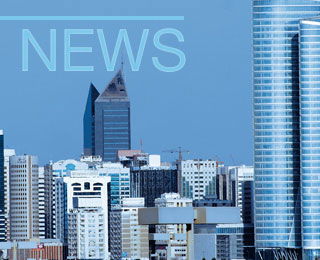First half turnover rose by around 4% to EUR550m after adjusting for changes to the corporate structure, without which there was a 12.7% decline. The EBITDA was around a quarter higher at EUR203m, once the capital gains inserted last year are taken out. Germany represented some 42% of the turnover, but less than 30% of the EBITDA and eastern Europe is now the biggest contributor to profits, ahead of Germany, the US associate and Luxembourg. Capital expenditure was almost 40% lower at EUR27m compared with the same period last year.
Turnover in Germany improved by an underlying 2% as a EUR17m improvement thanks to better prices was largely offset by a EUR12m reduction caused by lower volumes. The EBITDA improved by EUR16m as the recovery in prices more than offset higher energy and repair costs as well as lower volumes. Dyckerhoff reported that its current cement price was around €11 per tonne above the low point of last year and the company expects to achieve an average cement price in 2004 some EUR11 to EUR12/t above what was achieved in 2003. The actual cement consumption remains difficult to assess because of continued hidden cement exports to The Netherlands and Belgium, but for the full year, German cement demand is expected to decline by about 3%. Luxembourg remains a stable market, with slightly better volumes and prices, that gave rise to a EUR5m improvement at the EBITDA level.
In Poland, Dyckerhoff improved deliveries by 14% but price increases are difficult to achieve in the wake of the increase in value added tax on building materials, while in the Czech Republic an 8% increase in cement demand was accompanied by a 4% fall in prices. The strongest improvement was seen in the Ukraine, where volumes rose by some 25% and prices improving by between 20% and 36% depending on the area. Dyckerhoff is re-commissioning one previously mothballed kiln this year, with a further one following in 2005. In Russia, the group is seeing a more modest volume increase in low single figures.
The North American business, now represented by a 48.5% stake in RC Lonestar, was negatively affected at the EBITDA level by the accounting effects of the merger, the falling US currency and higher plant repair costs. However, merger benefits showed through at the pre-tax line thanks to lower interest costs. The first round of price increases, of US$2 to US$ 3 per short ton, largely stuck and a second round of US$3 to US$5 per short ton is currently being implemented.
